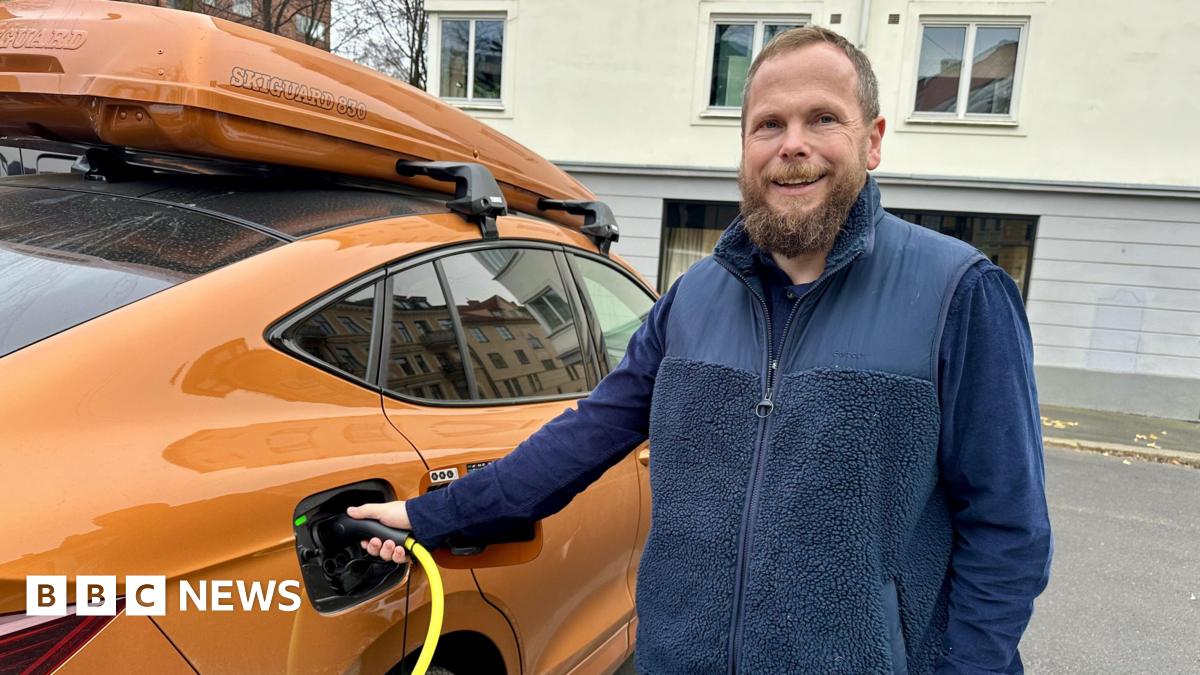Summary
Norway leads the world in electric vehicle (EV) adoption, with EVs making up nearly 90% of new car sales in 2024 and over 30% of all cars on its roads.
This shift, driven by decades of policies like tax exemptions for EVs, higher taxes on fossil fuel cars, and perks like free parking, has put Norway on track to phase out new fossil fuel car sales by 2025.
The country’s wealth, renewable hydroelectric power, and extensive charging network have enabled its EV revolution, serving as a model for other nations.



We do it with hydrogen cars… I don’t see the difference here.
The difference is that ICE cars are the gold(bronze? It’s not a high bar… just the one we’re used to) standard to currently beat. When Electric is just as convenient or better than ICE, I’m willing to bet that people will start to argue the other way. We already see it with people who can get away with Electric at home. It’s all they can go on about with how convenient that is… So much so that they seem to forget that it’s only convenient for them because they’re lucky enough to meet the requirements to make it convenient.
deleted by creator
The point is exactly that… “this is the world we live in”… And as that world evolves, or as technologies and consumer desires changes, what people will complain about will change as well.
If there were no gas stations around… I would blame ICE cars for needing gas and thus would choose something else that fits my needs better. The point is that infrastructure exists and is part of the package of buying the vehicle. It’s fair game for discussion, and thus blame.
deleted by creator
With the way things are going in Norway, i bet EV cars will be blamed for that one as well, when the petrol stations start to disappear…
deleted by creator
It’s not the infrastructure’s fault I bought the car that I can’t feed with whatever energy source it uses.
If I buy a car knowing that the infrastructure is lacking then the car causes me problems doesn’t it? Or lets say infrastructure disappears because of demand (or lack thereof), the car becomes useless, no? These things are linked.
deleted by creator
Both the fridge and the grid… You know how/why? I choose the model of fridge that keeps seal well, that is efficient (takes less energy overall), etc… There are decisions made when buying the fridge that rely on whatever cost I evaluate at the time.
This is my point… It’s ALWAYS both. They go together. The fridge is useless without power… The power is useless without shit to run. They are intertwined. If the power magically swapped to 240v rather than 120v, I’d be pissed at both the grid and my devices. If you buy an electric car and have nowhere to reliably plug it in, you’re going to be mad at the car (and hopefully yourself for being stupid and listening to the car salesman).
In this SPECIFIC case, I have solar and backup battery. So I’m even more in tune with actual things like how much power my fridge draws.
deleted by creator
Let me posit it a different way. Do you know how to design a car? or a fridge? or ANY of the appliances we’ve dragged into this at this point? Did you make the device? Do you think that you could have or would have designed something differently if you were in charge?
So if a designer/engineer makes a product that RELIES on something… Do you really have much say in the matter? Considering that like 99% of fridges rely on power coming from a grid… Safe to say you really have no options here?
So when the one thing it relies on goes out… Who’s fault is it? Nothing stopped that designer from putting a few SLA batteries into the thing and continuing on for hours during a grid outage… It’s both the appliance designer for not having the foresight, and the grid maintainers fault for the outright failure. Both together could have made something foolproof, but didn’t.
I can’t believe that you think you’re point of view is the only one that matters out there. What a ugly statement to make as if you were just explaining something to a child. Get over yourself. The world isn’t black and white. Lots of things are gray out there, like it or not, infrastructure is a core part of decisions people make, including what vehicles people will buy.